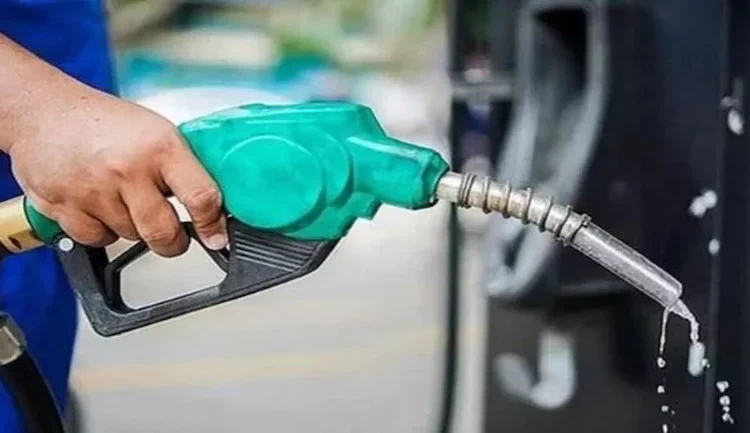In my last week’s column (Beyond the PEPT’s Judgement), I argued, among other things, that the Western brand of liberal democracy we currently practice does not, and cannot work in our type of society where the basis of even statehood remains contested. This is because the adversarial nature of our electoral competition aggravates the structures of conflicts in the society, deepening the fault lines necessarily mobilized as part of our identity politics and consequently undermining the nation-building process. I equally argued that largely because of these factors, many Nigerians feel alienated from the political process and consequently from the nation-state itself.
This reflection shifts emphasis from our political system discussed last week to our political economy. It challenges the notion that there was a ‘consensus’ that fuel subsidy would be removed in its entirety. In fact, both President Tinubu and former President Buhari, as leaders of the then opposition APC, had argued that there was no subsidy at all on Premium Motor Spirit (aka fuel) and therefore that the whole argument used by the then Jonathan government to justify its quest to remove or reduce the level of fuel subsidy was a scam.
The wrong notion that there was a “consensus” that the subsidy on fuel price should be removed seems to have been amplified by a number of factors: one, is the media orchestration of the fact that the three leading candidates in the last presidential election – Tinubu of the APC, Atiku of the PDP and Peter Obi of the Labour Party are all free marketers, who in the course of their campaigns, had said they would remove subsidies on fuel if elected. Even at this, the manifesto of the APC talked of phased removal of subsidies not removing it in one fell swoop as Tinubu did. Two, is that the constant media repetition of this lie that there was a ‘consensus’ tended to make it acquire the toga of truth – in line with the dictum of Joseph Goebbels, Minister of Propaganda for the Nazi government of the Third Reich who infamously was quoted as saying: “If you tell a lie big enough and keep repeating it people will eventually come to believe it.” Three, many Nigerians were disenchanted by the obvious corruption in the subsidy regime. For instance, a report by the Businessday of 22 May 2023 revealed that Buhari, who had called fuel subsidy a scam as an opposition politician, ended up spending more on fuel subsidy than his three predecessors in the current democratic dispensation combined. According to the paper, Buhari spent a whopping N11trn on fuel subsidy from 2015 to 2023, compared to Obasanjo, Umar Yar’Adua and Goodluck Jonathan who spent N812bn (1999-2006), N94bn (2007-2009) and N3.9trn (2010-2014) respectively. Doubts over claims by the Nigerian Midstream and Downstream Petroleum Regulatory Authority that the country’s daily average petrol consumption stood at 66 million litres in 2022 did not help matters.
Four, critical voices, essentially from the Lagos axis, who used to be the guiding spirits or quiet funders of anti-government protests, including the protest over the removal of fuel subsidy in January 2012 (aka ‘Shutdown Nigerian’ protest) became quiet or muffled when the APC came to power in 2015 as they became either emotionally aligned to the party or became weakened by that alliance. This enabled the Buhari government to get away with hiking the fuel price from N87 per litre to N145 on 11 May 2016. Similar factors made it difficult for Tinubu’s ‘fuel subsidy is gone’ declaration on May 29 2023 to be challenged. Five, the several commentaries on how dire the Nigerian economy was under the Buhari government (with many citing World Bank data) and how the ‘unsustainable’ subsidy regime was responsible for this, gave a wrong impression that the only option left for Nigerians was to remove fuel subsidy in its entirety and in one fell swoop.
What people wrongly call ‘consensus’ on fuel subsidy removal is actually playing the Washington Consensus card – which most research found has never really worked in any of the developing countries. Washington Consensus was originally a set of ten economic policy prescriptions considered to be the “standard” reform package promoted for the developing economies of Africa and Latin America. The term was first used in 1989 by John Williamson, an English economist from a Washington-based think-tank, the Institute for International Economics. His prescriptions included such market promoting policies as trade liberalization, de-regulation and privatization of state enterprises. Washington Consensus as a terminology is however these days used in a broader sense to refer to a general orientation towards a strong market-based approach (sometimes described as market fundamentalism or neoliberalism).
Williamson, who invented the terminology, himself seemed to have been influenced by the World Bank’s 1991 publication, Accelerated Development in Sub-Saharan Africa: An Agenda for Action (also known as the Berg Report), which provided the theoretical foundation for the IMF-World bank supported structural adjustment programmes (SAPs) of the 1980s and 1990s. The central emphasis of the SAPs of that time was on ‘rolling back the state’ (for market forces and the private sector to allocate societal values). My PhD in the early 1990s at Roskilde University Denmark was on the IMF/World Bank Supported Structural Adjustment programmes in Africa. There was hardly any African or Latin American country where the SAP achieved a resounding success. In fact, the 1980s – when most African countries were forced to embrace the IMF/World Bank supported SAPs – became known as Africa’s lost decade.
In Nigeria it was a period in which the middle class was completely emasculated, the general population impoverished, several businesses closed down and foreign multinationals took flight. Many Nigerians who could, including my humble self, voted with their feet (or “did an Andrew” as it was called in those days). After the programme helped to further impoverish the continent, the two Bretton Woods Institutions (World Bank and the IMF) blamed the failure of the programme on factors such as poor implementation and began to promote a new mantra – “bringing back the state”, in which it now argued that what was needed for Africa’s development were ‘good governance’ and ‘strong institutions rather than strong men”. It seems these institutions have gone back to the failed ‘rolling back the state’ mantra.
Tinubu’s removal of fuel subsidy and flotation of the Naira in one fell swoop, (wrongly promoted as bold economic policies), re-echoes the key measures in Babangida’s structural adjustment programme. I remain sceptical that the policy will succeed because it never succeeded anywhere in Africa. A wrong narrative was promoted that fuel subsidy benefits primarily (if not exclusively) the rich, forgetting that in our generator dependent economy, those likely to be most adversely affected by the removal of fuel subsidies are not the very poor but business owners (who run their businesses mostly on generators and create most of the jobs in the economy) and the Middle Class. It can be argued that frustrations with the Washington Consensus and the current Western system of international economic development is one of the attractions of BRICS to many non-Western countries. BRICS has promised to help engineer a multipolar world order which would serve as a counter weight to the current Washington Consensus that has hardly worked in any developing country. It is unfortunate that an uncritical consensus seems to have been built around the very fallacious notion that subsidies are bad and distorts everything in the economy. The truth is that virtually all successful economies in the world today, even the most capitalistic and free market-oriented, employ various forms of subsidies to support segments of their society and businesses.
I agree that the subsidies on PMS have become unsustainable. But the solution, in my view, is not removing the subsidy on fuel in one fell swoop or floating our currency. I believe that effectively checkmating the fraud in the subsidy regime and gradually reducing the level of the subsidy would have been more productive. For instance, maintaining a level of subsidy on PMS and fertilizer will also mean subsidizing food and manufacturing (because most depend on generators) as well as the Middle class (who are the most productive segment of the population). Maintaining a level of subsidy on PMS will cascade throughout the entire value chain of the country and therefore better than trying to narrowly target a particular demographic with handouts (otherwise called palliatives). Besides, I do not see the logic in the government removing subsidy on fuel (where it is most needed) just to be to create subsidies in other sectors – in a rather very inefficient and unconvincing manner.
__________
Jideofor Adibe is Professor of Political Science and International Relations at Nasarawa State University, Keffi and Extraordinary Professor of Government Studies at North Western University, Mafikeng South Africa. He is also the founder of Adonis & Abbey Publishers and can be reached at 0705 807 8841(Text or WhatsApp only).





